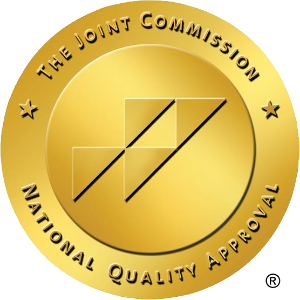As the seasons continue to change we will continue on our theme of mental health in the fall and how it affects everyone. The transitional period of Autumn provides beauty in nature but also a looming feeling of despair. This juxtaposition of these emotions can lead to many people struggling with their mental health. Those living a life of recovery and sobriety are especially at risk for mental health issues during this period.
Both autumn anxiety and Seasonal Affective Disorder can have a negative effect on everyone when the weather starts to turn. Autumn anxiety and SAD can have similar symptoms and similarly cause people to struggle with their sobriety and everyday life.
Autumn anxiety and SAD can cause people to feel depressed, anxious, irritable, lethargic, fatigued and can lead to a general loss of interest in everyday activities. If you or someone close to you have been experiencing these feelings then it is important to know that people all over the world in all walks of life deal with the same issues.
According to Psychology Today more than 10 million Americans report being affected by SAD, and almost 1 to 2 million more people express mild symptoms without being diagnosed. Additionally, women are four times more prone to it than their male counterparts. Most people who have experienced SAD first start getting it between the ages of 18 and 30.
While these numbers are fairly daunting, they can be looked at from a positive angle in a sobriety sense. If SAD is making you or a loved one question their commitment to sobriety it can be important to remind them, or yourself, that everyone across the entire population has to deal with this problem and it isn’t just the lack of a vice that is making it so difficult to deal with.
Causes
With this many people being affected you would think that the causes of SAD and autumn anxiety would be extremely obvious, unfortunately it is a little more complicated than that. It is clear that the shortened days and lack of sunlight play a large part in the problem, but doctors are not sure what the entire cause is.
The shorter days and additional hours of nighttime cause our bodies to produce more melatonin for longer periods or time which leads us to feel lethargic and sleepy which plays a large part. Past that it is unclear what causes the symptoms similar to clinical depression.
Treatment
Like with any other issue in life it is vital that you see a doctor and do not self diagnose and treat yourself. If you or someone close to you is struggling with either of these two issues then they must go to a doctor and get diagnosed.
From there, most doctors will treat the issue with light therapy, vitamin D supplements, counseling, and potentially antidepressant medication.
While this works for most people, living a life of recovery can make SAD a little bit of a bigger issue that must be dealt with more diligently on a personal level. This is because these feelings of depression and anxiety are major triggers for a relapse.
In addition to finding professional help for any emotional struggles you may have, you should also set yourself up for personal success by following the guidelines below.
Maintain A Sleep Schedule
Maintaining a specific sleep schedule will allow you to wake up feeling rested and ready for the day. Along with fighting off insomnia this mental clarity will also allow you to attack the day with a positive mindset that will allow you to dismiss small feelings of SAD.
Additionally, you can set up your sleep schedule to maximize daylight hours. This will allow you to get more vitamin D and stand a better chance of avoiding an issue this fall.
Exercise
Along with a healthy sleep schedule, exercise will help you keep your head clear, help you get outside in the sun, and help you stay healthier in general. These three qualities will all help you prepare your mind to fight back against the anxiety and depression that may come along with the changing seasons. Additionally, exercising will help you sleep better, making the sleep schedule and exercise plan a self fulfilling cycle that will prove to make your life happier, easier, and healthier.
Maintain A Support System
While preparing yourself as best as possible for the season is a great thing to do, it is still necessary to rely on other people. Putting all of the stress of your recovery and SAD on yourself is too much for anyone to handle.
In this tough season it is even more vital that you stay in touch with your personal and professional support systems. They will have answers and support when you need them, which will allow you to better understand yourself and how you feel. Heck, reading this article means you are already off to a great start.






